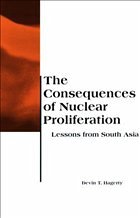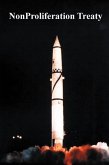Hagerty presents detailed studies of the January 1987 Indo-Pakistani crisis, precipitated by India's "Brasstacks" military exercises, and the 1990 confrontation over Kashmir. He finds that the two countries nearly went to war in the "Brasstacks" crisis, at least partly because Pakistan's nuclear capability remained nascent. In the 1990 crisis, however, both countries were aware of the possibility of nuclear escalation and acted more cautiously. Hagerty finds little evidence of preparations for preemptive nuclear strikes in the 1990 crisis. Instead, India and Pakistan appear to have embraced the logic of nuclear deterrence. Hagerty concludes that relations between India and Pakistan in recent years support the argument that nuclear proliferation does not necessarily destabilize international relations and may even reduce the risk of war. This conclusion is grounds for optimism about peace in South Asia now that India and Pakistan are overt nuclear-weapons states.








